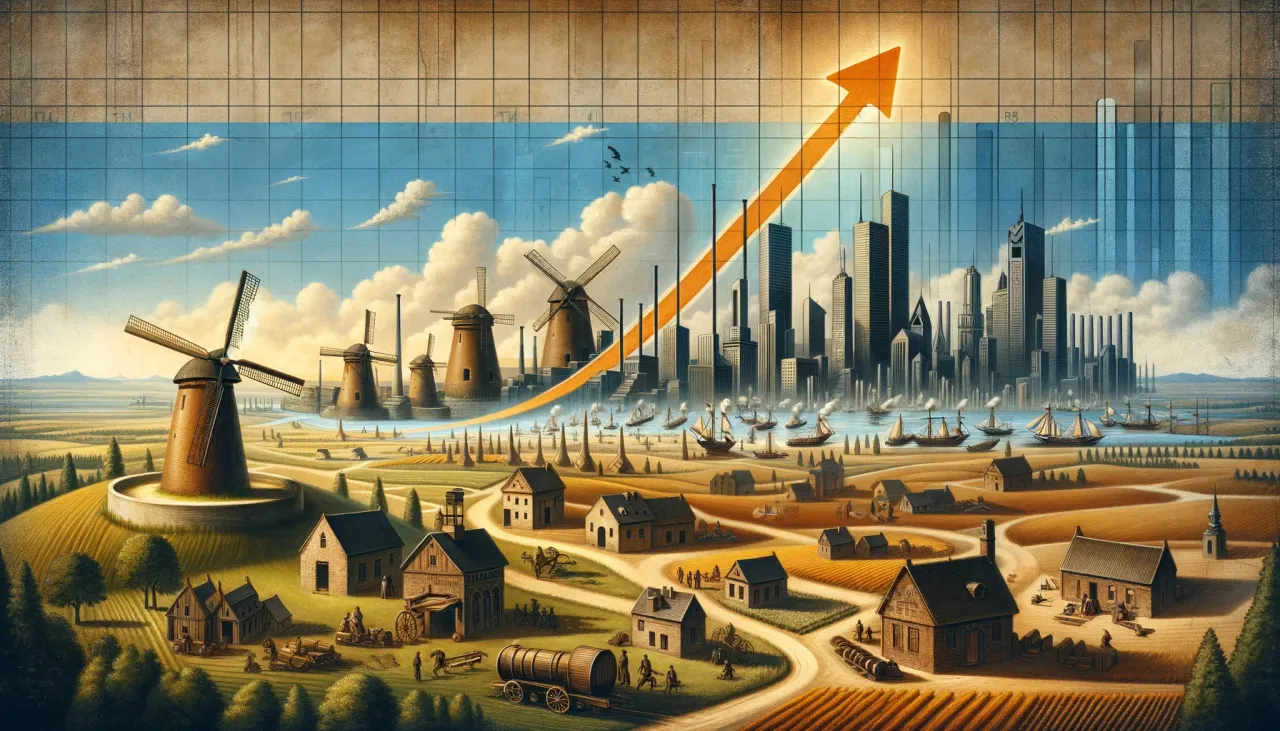The Unprecedented Rise of Global GDP per Capita: A Historical Perspective
0 comments

The journey of human economic development is a fascinating tale of gradual progress followed by rapid advancements. One of the most compelling ways to visualize this journey is through the historical estimates of global GDP per capita, adjusted for inflation. A recent graph from "Our World in Data" vividly illustrates this long-term economic trajectory from 1 AD to 2021.

A Flat World for Millennia
From 1 AD to around 1800, the global average GDP per capita remained remarkably flat, hovering below $1,000. This extended period of stagnation reflects a time when economic growth was minimal and incremental. For most of human history, standards of living were relatively constant, with no significant improvements in the average person's economic well-being. The primary economic activities were agriculture and small-scale craftsmanship, both of which saw slow technological progress.
The Turning Point: Industrial Revolution
The 1800s marked the beginning of a transformative era—the Industrial Revolution. This period saw the advent of machinery, improved agricultural techniques, and the rise of factories, which collectively ignited significant economic growth. The graph shows a gradual uptick starting around this time, signaling the beginning of sustained economic development.
Technological innovations such as the steam engine, mechanized cotton spinning, and advancements in metallurgy revolutionized production processes. This shift not only increased productivity but also laid the groundwork for urbanization and the expansion of trade networks.
Exponential Growth in Modern Times
The most striking feature of the graph is the exponential increase in GDP per capita starting from the late 19th and early 20th centuries. This surge reflects the profound impact of technological advancements, globalization, and industrialization on the global economy. By the mid-20th century, the world saw unprecedented economic growth fueled by the digital revolution, advances in transportation, and the rise of information technology.
Key developments such as the advent of electricity, the internet, and modern computing have dramatically boosted productivity and economic output. The rapid rise in global GDP per capita during this period signifies a remarkable improvement in living standards, health, education, and overall quality of life for many people around the world.
The Implications
Economic Development: The sharp increase in GDP per capita highlights significant improvements in economic productivity and efficiency. This growth has been accompanied by better healthcare, education, infrastructure, and an overall rise in living standards.
Technological Advancements: The exponential growth phase underscores the critical role of technological innovation in driving economic development. Innovations in various fields have led to increased productivity and new economic opportunities.
Global Inequality: Despite the overall increase in global GDP per capita, it is important to recognize that this growth has not been evenly distributed. Significant disparities in income and wealth persist both within and between countries, posing challenges for policymakers and societies.
Future Trends: Understanding the historical trajectory of economic growth can help us anticipate future trends and challenges. Issues such as sustainable development, managing technological impacts, and addressing global inequality will be crucial as we move forward.
The historical estimates of global GDP per capita reveal an extraordinary story of human progress. From centuries of stagnation to an era of rapid growth, our economic journey highlights the transformative power of technological innovation and industrialization. As we continue to navigate the complexities of economic development, it is essential to learn from our history and strive for a future that promotes equitable and sustainable growth for all.
Comments